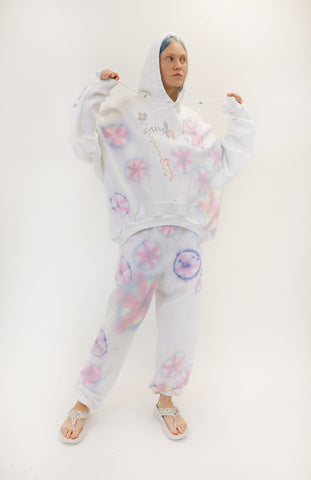Sustainability is one of the most important words for businesses across the globe. While it might have once seemed like a trend that would fade away, as more people become aware of the growing issues facing the environment, sustainability, and locally sourced products, are here to stay.
From electronics to fashion, brands are now making an active effort to maximize their sustainability. The eco-conscious younger generation is driving this noticeable shift to protect the environment. A 2015 report conducted by Nielsen found that 73% of millennials admitted they would be willing to pay more for items that came from sustainable brands, while further research in 2019 revealed that 62% of Generation Z would do similar.
There is a growing shift from consumers worldwide, as they actively seek businesses with more repurposed and locally sourced products. In the last seven years, the growth of sustainable consumer products has risen by 50%, and the demand is showing no signs of slowing down, particularly in the world of fashion.
What is the future of sustainable fashion?
Fashion is one of the world's biggest industries and is expected to be worth over three trillion dollars by 2030. However, it is also one of the most damaging industries in the world, producing 10% of the world’s carbon emissions, significantly polluting the oceans with microplastics, and being the second-biggest consumer of the world’s water.
As consumers demand more sustainability, the culture of fast fashion is disappearing, and a greater emphasis is being placed on quality over quantity. The future of sustainable fashion lies in creating long-lasting and durable products, and an increasing number of brands are utilizing higher quality and eco-friendly materials, such as vegan leather or biodegradable fabrics.
Technology is also helping to drive the future of the industry. From creating new manufacturing processes and developing innovative new materials, technology is leading the way in helping brands to become more sustainable. It is also transforming how consumers engage with brands, with artificial intelligence, 3D solutions, and virtual stores, reducing the need for physical stores, which in turn is reducing the need to ship products around the world.
Examples of sustainable brands
While many of the large fashion brands are now making efforts to reduce their impact on the environment, it is the startups that are leading the way when it comes to sustainability. There are dozens of innovative fashion brands out there, including:

Launched by designer Hillary Taymour, Collina Strada puts sustainability first, and it focuses on producing vibrant, tie-dye items of clothing. These items have been worn by a range of celebrities, from activist Kimberly Drew to musician Rosalia.

Pangaia is a sportswear brand using bio-based fibers and materials that come from recycled plastic bottles. They also use natural botanical dyes to ensure complete sustainability throughout their production.

Tentree is committed to making the environment stronger, and for every item of clothing or accessory that customers purchase, they will plant ten trees.

This Netherlands-based brand uses 100% organic and recycled products, and its innovative jeans are entirely vegan and approved by PETA, while its suppliers minimize water usage by using laser washing techniques.
Our brand
Here at Nomos-T, we are incredibly passionate about making the world a more sustainable place. Every year billions of trees are cut down to make essential items, but tons of offcuts and residuals are simply discarded into landfills.

Our mission is to reduce this waste by transforming these materials into natural and elegant products. We pride ourselves on our expert craftsmanship, and our wooden watches and sunglasses are carefully curated by hand to ensure our customers are able to enjoy the very best products possible.
Want to find out more? Check out our full range here!





